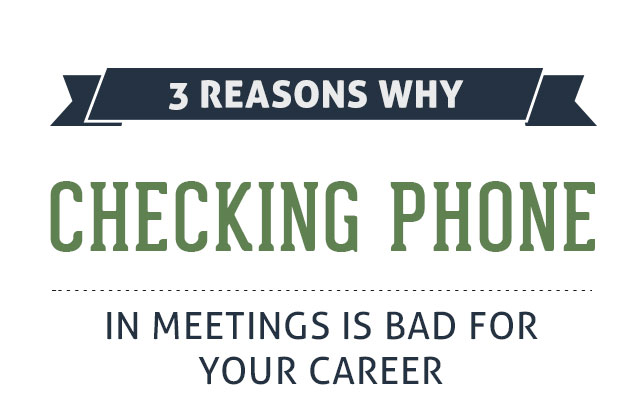Do you know what we ask our seminar attendees to do as soon as they show up for a workshop? Yes, that is right. We request people to power off their mobiles and keep them away.
Away!
Because the ‘silent mode’ is not enough to sever the fatal attraction we feel towards this contraption. As long as there is a mobile around with its enticing array of social apps and the sneaky, ever present email – you can never dedicate your full attention to learning the valuable principles of GTD®!
The same applies to your meetings. If you are in the habit of checking your email and think you are being smart and proactive at multi-tasking, think again. This little action of yours may be adversely impacting your career in a way that you haven’t even thought of.
You won’t like what you read next. But you should nevertheless.
The Pavlov Effect
When Ivan Pavlov rang that bell, his dogs salivated. When a cell phone rings, we jump. We leave everything else to attend to its insistent beckoning. Where being demanding is concerned, cell phones are WORSE than crying babies.
Even if they are not screaming for attention, their mere presence is like a signboard that says: “Pick me up! Look at me! Be my slave”
The bottom-line is we as a generation have been conditioned into being at the beck and call of our mobiles. And this rut is hard to get out of.
Why Checking Your Phone in Meetings is Bad?
Your left brain is funny. It is a serial processor. This means it has to complete one task before it can focus with any degree of accuracy on another. At a meeting, important things happen! Decisions are made. Policies are issued. Impressions are formed. You need to be alert and present with all of your cognitive abilities raring to go. When you break a particular train of thought to answer a text or send off an email, the following things happen:
- You step out of ‘listening’ mode and into ‘action’ mode. This takes some time to happen. So it is likely that the important stuff that called you to fiddle with your phone in the first place isn’t taken care of to perfection. Your brain is still spinning its wheels in transition.
- The connection you had established with the ongoing conversation in the meeting (and its content) is lost. When you try to jump back in, you find that your sweet spot is gone! You must exert yourself to be in the ‘zone of understanding’ again. This is challenging since now you have two things- the meeting and your cell phone- competing for your mental bandwidth.
- Because of the constant back and forth, you take away precious little from the meeting. You might as well have not attended it.
Okay now you can argue that nothing of import takes place at the meetings you attend. I am talking about a Utopian situation where the boss’ pet isn’t hailed as a genius all the time! Fair enough.
Even if administrative tasks benefit little from meetings, your personal presence in the company does. In a recent survey conducted by the Marshall School of Business, it has been found that the management tends to find cell phones and their use in meetings ‘rude’.
It screams a lack of respect.
It literally says, ‘Your opinions are so boring I will check what my peeps have to say to me instead.’
So every time you pick that mobile, it’s a strike against your professional standing as well!
So What Should You Do Instead?
Pay attention to your attention.
It is the most precious asset you have. If it is wandering, bring it back to more productive pursuits.
Before stepping into a meeting, make an agreement with yourself that you will NOT fiddle with your cell phone. No matter what! And then stick to it.
You may also do a quick Mind Sweep of the items that you have to process once the meeting breaks and keep the list aside. This way you will step into the boardroom with the confidence that you have things taken care of and will feel the urge to reach for your mobile less often.
Try this recommendation out and let the Calm Achiever community know your experience.

